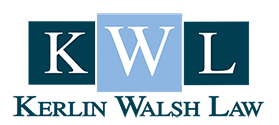Blog Articles
Info About Wills, Trusts, and More…
Hello and welcome! I am Eileen Kerlin Walsh, and I will bring you valuable and topical information on Estate Planning. Estate Planning is the legal process of protecting your assets and your loved ones in the event of disability or death.
Why do you need an estate plan? If you don’t have a valid Will or Trust, Illinois law determines how your assets pass, to whom and when. Having no estate plan can lead to unnecessary taxes, creditors, probate court and other undesirable results. This is the most costly way to pass assets to your loved ones. You can do much better and my column will show you how!
Assisting Your Client: Which Trust Is Right For Your Client?
Evidence suggests that many people are establishing trusts as part of an estate plan. Some motivations for creating a trust include avoiding probate, preserving privacy, planning for incapacity, protecting a beneficiary’s inheritance from creditors, minimizing estate...
Assisting Your Client: Show your clients a richer planning approach
Discussions about money are never just about the exact dollar amounts listed on paper. They are inherently emotional because a person’s wealth is tied to everything they have worked for and hope to pass on as their legacy. Clients can incorporate their values, life...
Assisting Your Clients: Things to Consider When Using Beneficiary or Transfer-on-Death Designations
Advisors often focus on big-picture and long-term planning. However, the devil is in the details, and even seemingly straightforward aspects of a plan—such as beneficiary designations—can have profound implications for our clients’ financial objectives and legacy...
Assisting Your Clients: Planning for Conflict Prone Families
Unfortunately, the battle over family wealth is as timeless as family itself. Regardless of how prepared your clients might be, there is no predicting how otherwise rational people will behave after the loss of a family member. A will or trust contest can cause...
Assisting Your Client: Helping Clients Pass on Their Wealth
Is Outright Distribution the Right Choice for Your Clients? An inheritance can be life-changing. Many younger Americans, stuck in a cycle of debt and rising costs, are anticipating their cut of the $84 trillion “Great Wealth Transfer”—a term financial experts use to...
Assisting Your Client: A Financial Advisor’s Guide to Navigating Different Types of Wills
It is true that most Americans do not have even the most basic estate plan in place. This is where, as an Advisor, you can add value to your client relationships by paying attention to the validity of wills for those people who do have a will or are engaged in the...
The Wrong Successor Trustee Can Derail Your Final Wishes
Many estate plans contain revocable living trusts that will become irrevocable (cannot be easily changed or terminated) when the trustmaker dies. Such trusts may benefit the surviving spouse during their lifetime and may continue for the benefit of several additional...
Property Sisters: 4 Tips to Avoid a Will or Trust Contest
Fighting over provisions in your will or trust can derail your final wishes, rapidly deplete your financial legacy, and tear your loved ones apart. However, with proper planning, you can help your family avoid a potentially disastrous fight. If you are concerned...
Where Is the Best Place to Store Your Original Estate Planning Documents?
Estate planning attorneys are often asked where original estate planning documents—wills, trusts, powers of attorney, and healthcare directives—should be stored for safekeeping. While there is no right or wrong answer to this question, consider the following: Should...
Myths and Frequently Asked Questions – Planning for Conflict-Prone Families
Myth 1: My spouse and I had our estate plan prepared 20 years ago. It is done and off our to-do list until one of us passes away. Fact: Estate planning is not a one-and-done event. By not updating your estate plan to account for changes in your circumstances or those...
